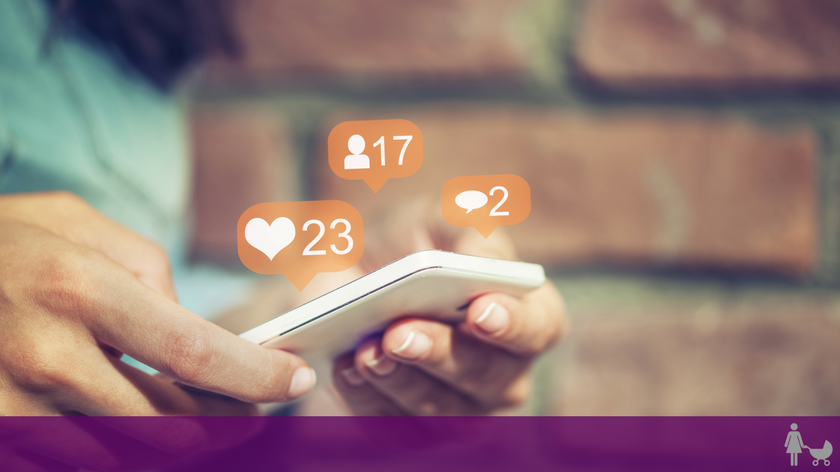We live in a world dominated by social media. Two and a half billion users globally participate on social media using apps like Facebook, Instagram, Twitter and Snapchat. We spend an average of two hours every day on these applications. How is all this social media usage impacting our health?
The good news is that it’s not all bad. Social media can have a positive impact on people’s health.
The good:
- Mental well-being. Being able to connect with loved ones over long distances is arguably social media’s greatest asset. According to the Pew Research Center, 34 percent of Americans 65 and older use social networking sites. Why? To see photos of their grandchildren. Social media platforms can also provide social support and positive feedback from friends and family. This “high value,” “feel-good content” can improve your mood and stress levels.
- Inspiration. You can follow accounts that inspire you to live healthier. Looking for an easy healthy recipe, Pinterest has literally millions. Want a training support group or the next road race to register for? Social media can help. Here are a few we suggest:
- Social network pre-commitment. The American Society of Training and Development (ASTD) found that sharing a goal or resolution with a friend means that you are at least 30 percent more likely to achieve it than those who don’t pre-commit to a friend. Social media is a great way to tell friends about your goals.
- Motivation. Expand your community by finding like-minded folks on social media.
The bad:
- Time consuming. As we mentioned, we spend an average of two hours each day on social media and most of that time is spent sitting or lying down. This is time you could spend exercising or doing something else to improve your health (like meditation or meal planning). In fact, the most common answer people give us for their not being healthy is lack of time. Yet, on average, we have two hours a day to spend on social media.
- Fear of missing out (FOMO). Seeing pictures of friends living their best or most healthy lives may not be inspiring for everyone. It can trigger more negative emotions like isolation, jealously and sadness, leading to a lower mental well-being and life satisfaction.
- In a review of studies completed by Facebook scientists, they conceded that there can be a negative impact to your well-being by using Facebook . They concluded that what matters is how you use social media. Those with more meaningful interactions tend to be happier than those without. Which means that simply scrolling and liking could lead to worse well-being.
- Cyber-bullying and “Facebook depression.” In a Harvard Business Review study, researchers found that the more people use social media the more likely they are to feel depressed.
- More friends on social media doesn’t mean more friends. Face-to-face social interaction will always be healthier than digital. Research has shown that the use of social media may detract from actual in-person, meaningful interactions.
The really bad (or ugly):
Social media is free to use. Or is it? You may not be paying in dollars, but you yourself are the commodity. You pay in yours and your friends’ information. Even your answers on a personality quiz are a form of payment. And did you give permissions to a third-party app to access your friend list? That’s also a form of payment. In its most innocent form, companies are paying social media platforms for this information to better target consumers. In its darker form, some companies and individuals are trying to reach you by using misleading or false information, or elevating your existing fears and concerns.
Stay tuned! Next we will look at the “ugly” side of how social media can impact your health.
Lori Serradas, inventor of the Vitality Squares game, spends her days studying the intersection of health and tech.
Cheryl Jacobs, social media maven, is the proud mom of two babies: her 18-month-old daughter and eight-year old dog. She spends her free time chasing after the toddler who is chasing after the dog.







